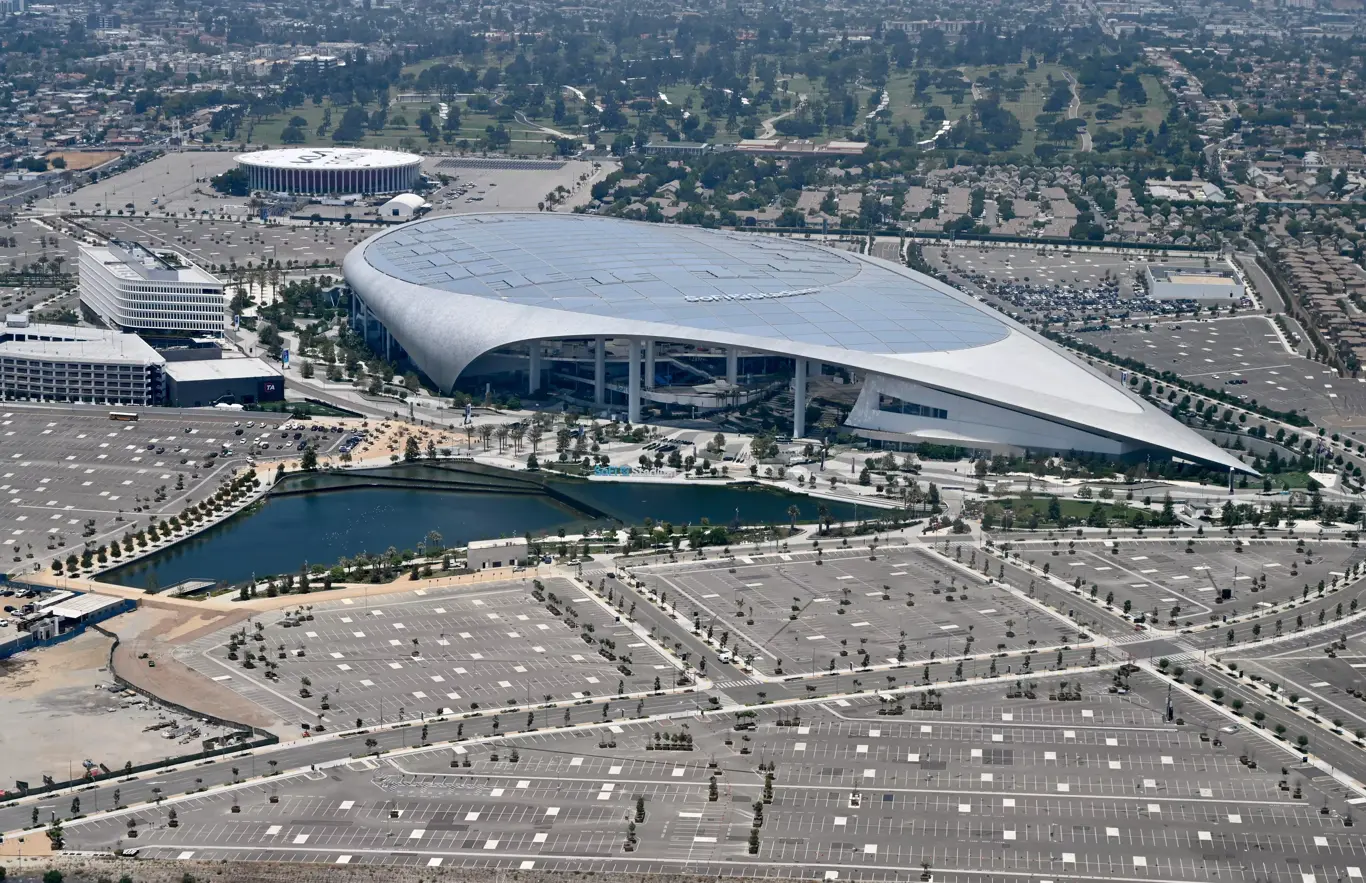Beyond its primary role as a sports venue, the Los Angeles Stadium steadily establishes itself as a cultural icon, hosting significant events that transcend athletics.
Concerts and Entertainment
One cannot discuss the cultural relevance of the Los Angeles Stadium without acknowledging its role in the music industry. Major artists routinely choose this iconic venue for concert tours, capitalizing on its state-of-the-art sound systems and impressive capacity.
With an atmosphere teeming with excitement, attendees experience live performances in a way that feels intimate yet grand. The excitement builds as fans gather to witness their favorite artists, creating unforgettable memories that linger long after the final encore
Readmore: https://hello88.reviews/gioi-thieu-hello88/
Additionally, the flexibility of the stadium allows for various genres of music to be celebrated, spanning pop, rock, hip-hop, and even classical performances. Concerts at the Los Angeles Stadium foster community engagement by bringing together people from all walks of life to celebrate the power of music.
Community Events and Festivals
Equally important are the community events and festivals that take place within the stadium, fostering inclusivity and unity. Seasonal celebrations, food festivals, and charity runs transform the venue into a vibrant gathering space for locals.
These events highlight the importance of community connection, providing opportunities for residents to celebrate shared values and cultural diversity. The Los Angeles Stadium thus becomes not just a place for sports but also a stage for social engagement, facilitating connections among attendees and creating a sense of belonging.
International Events
The global reach of the Los Angeles Stadium cannot be overstated. Hosting international sporting competitions and cultural exchanges, the stadium has become a beacon of diversity and inclusivity.
Major events such as the Olympic Games or World Cup matches are often held here, bringing together nations and promoting camaraderie among fans. These occasions open the door for cross-cultural conversations, allowing individuals to forge connections that extend beyond borders.
The cultural significance of the Los Angeles Stadium lies in its ability to serve as a platform for interaction, fostering understanding and appreciation among those who may otherwise never have crossed paths.
Economic Impact
While the Los Angeles Stadium stands as a monument to sports and culture, its influence extends further, making a substantial economic impact on the city and surrounding regions.
Job Creation
The construction and ongoing operation of the Los Angeles Stadium have created thousands of job opportunities, bolstering the local economy. From construction workers to event staff, the need for a skilled workforce has led to increased employment rates in the area.
Moreover, the ripple effect of job creation doesn’t stop at the stadium gates. Local businesses, including restaurants, hotels, and retail shops, benefit from the influx of visitors attending events. Increased foot traffic leads to heightened sales, stimulating economic growth in the broader community.
Tourism Growth
As the Los Angeles Stadium attracts national and international events, tourism flourishes. Travelers flock to the city not only to attend games but also to explore the vibrant cultural attractions that Los Angeles has to offer.
Concerts, sporting events, and festivals draw visitors who contribute to the local economy, boosting hotel occupancy rates and patronizing nearby eateries and attractions. The stadium serves as a focal point for visitors, encouraging them to explore other facets of the city, thereby promoting a thriving tourism industry.
Long-Term Development
The enduring legacy of the Los Angeles Stadium lies in its potential for long-term development. Its presence creates a strong case for continued investment in infrastructure and public transportation, ultimately leading to improved urban environments.
As the stadium garners attention from media and sponsors alike, opportunities for partnerships, sponsorships, and advertising emerge, further elevating its economic impact. The financial growth generated by the stadium ensures that it remains a valuable asset to the community for generations to come.
Conclusion
In summary, the Los Angeles Stadium transcends the conventional notion of a sports venue. It stands as a monumental achievement of architectural design, a vibrant hub for sporting events, a celebrated cultural icon, and a force for economic development.
From exhilarating moments on the field to electrifying concerts, the stadium showcases the very best of what Los Angeles has to offer. Its dedication to sustainability, community engagement, and versatility ensures that it remains relevant in a rapidly changing world.
As we look toward the future, the Los Angeles Stadium will continue to embody the spirit of champions—where dreams are realized, cultures unite, and memories are forged, all within the embrace of a remarkable structure that represents the heart and soul of this dynamic city.
